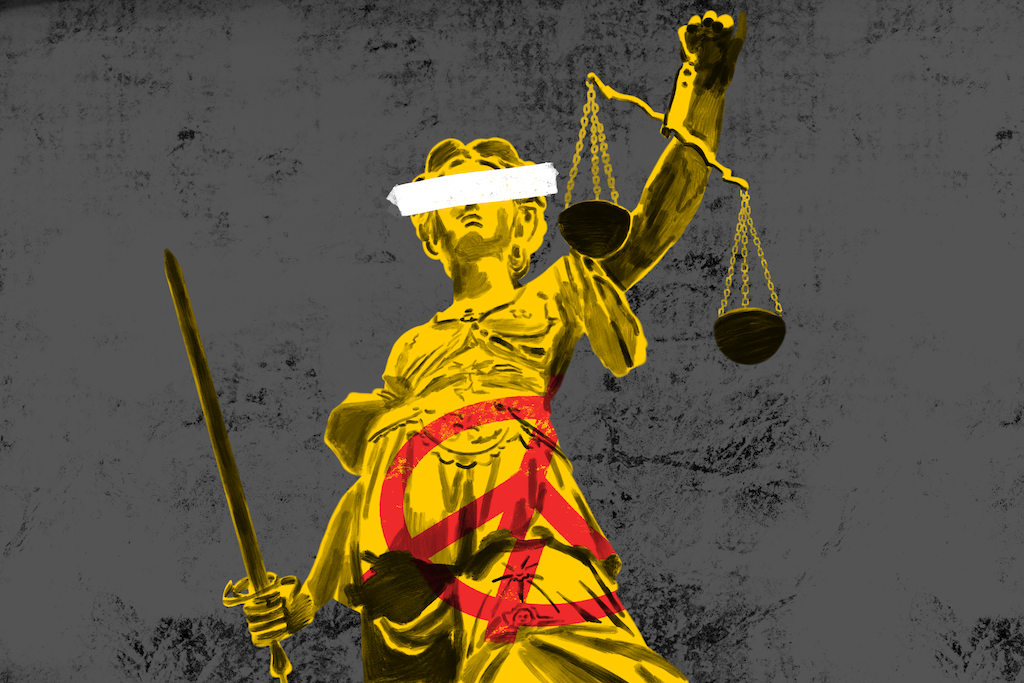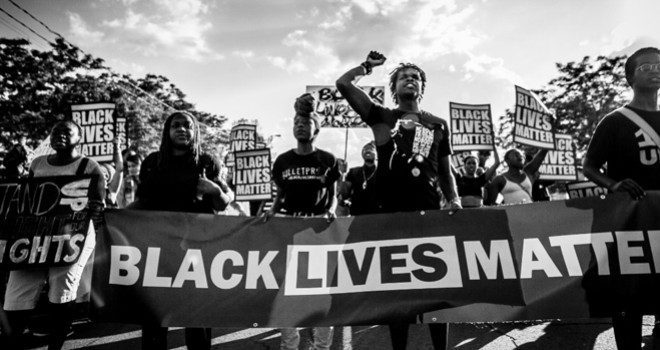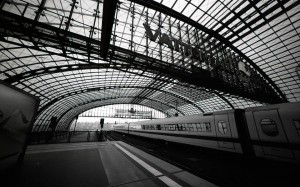
How a country’s culture of discontent reflects on the state of their democracy
by Tara Sallaba | May 6, 2022
It is only in the last few years that Britain has reimagined itself as a protesting nation. For Generation Z, the solidarity shown against the Iraq War is accessible not through social memory per se, but historical media. What has in fact revitalised the country’s relationship to acts of demonstration is far more recent instances of resistance to political declarations like Brexit, protests decrying ignorance of the Climate Crisis and vocal opposition to racism with movements like Black Lives Matter.
This dissipated relationship stands in contrast other European countries, such as France and Germany, where public displays of discontent are more common and have as such managed to become a consistent, and by extension less dramatic, part of the political dialogue between the country’s government and its citizens. In France, a country with the highest number of trade unions, and a taste for striking, it is near normalised to see people on the streets, in large part because the métro, its staff on strike once again, probably isn’t in operation that day. The frequency of these demonstrations can be explained by their historical efficacy, as they allow protestors to resist proposed political changes to labor rights and defend the status-quo established for the good of workers, such as the 35-hour working week policy. As the political scientist Frank L. Wilson has suggested, this can be attributed to the fact that demonstrations in France have become as much a ritualised social event as a political one.
This cultural element to protesting is not unique to France, however, since in Germany, demonstrating is also a regular pastime; attending demos is more emblematic of one’s quasi-anarchical aspirations than reflective of a particular attachment to any specific cause. If it is a particularly quiet Friday afternoon in the capital city, it is not uncommon for Berliners to jump online and browse through websites or Facebook pages to try and find a cause to rally behind that weekend. Not only that, but there are dedicated radio stations which have a daily protest calendar all-year round to make this task even easier for them. The desire to demonstrate extends across generations, from school-children and ‘Friday for Futures’ ralliers, to working professionals, including the owner of the Suicide Sue café in the Prenzlauer Berg district. When asked about the culture of protest more generally, this Berliner commented that ‘there is not a lot of change you can effect on a broader political scale, but attending protests is the best platform to show support. It can draw awareness to issues people may never have even thought about.’ Protesting is thus considered as much of a standard weekend activity as exploring new art exhibitions or going to the flea-market in Mauerpark would be. It is many of these same weekly-protest activists who are now contributing to the effort to rehabilitate Ukrainian refugees, as they come flooding into Berlin – being on the Polish border – following the Russian invasion of their country. The city hosted over 5,200 demonstrations in 2020, preceded by the 5350 which took place the previous year, all despite the pandemic. All of Britain, by contrast, had 280 reported protests in 2019, which in and of itself was a substantial long-term increase compared with the eighty-three protests that happened in 2007. This disparity explains why the German political infrastructure has evolved to handle these wide-scale events, whereas the resurgence of protests in Britain in terms of participants has caused a governmental crisis.
From arresting mourners at Sarah Everard’s vigil in March 2021 to attempting to pass outrageous policies in the ‘Police, Crime, Sentencing and Courts Bill,’ it is clear that the British government and its policing branch, the Metropolitan Police Service, are in complete disarray. In the context of many other nations, the British public would have declared these events some sort of institutional breakdown and evidence to a disgraceful loss of liberty. None of the protests so far have been especially threatening, or even violent. The most notable ones in recent years are those campaigning for increasing environmental protection, anti-racism, female safety and anti-Brexit policies. The individuals at these liberal events are not advocating for anarchy; it does not seem reasonable then for the government to respond to these appeals with such draconian tightening of measures.
The ‘Police, Crime, Sentencing and Courts Bill,’ orchestrated by Priti Patel, has tried over the past year to implement extreme counter-protesting measures, which have ironically reinvigorated resistance, unleashing a growing wave of ‘Kill the Bill’ protests. Thankfully, some of the most questionable parts of the bill were defeated in the House of Lords, like the plan to encourage police to stop protests if they were ‘too noisy.’ As stands, the bill will now go between the Commons and the Lords until an agreement is reached – but that it was proposed in the first place inherently begs two questions. The first is what the government perceives legitimate protests to look like. After all, it was public outcry which catalysed the legalisation of gay marriage, like in Northern Ireland, where it was ratified in only 2020. To protect or extend rights, it is necessary to show resistance against an oppressive status-quo, and so obstruction should be accepted as part of the overall development of society towards beneficial social outcomes, even if these tactics can also be used to promote more damaging causes, such as in anti-vax contexts.
The British government has set a precedent of handling activists too harshly, even if recent protests have resulted in nothing but public inconvenience. The way Insulate Britain’s protestors have glued themselves to various surfaces may have been frustrating, but ultimately it was a deed done for what is a universally beneficial cause, especially given the recent extreme rise in energy costs. Another point of concern is that the right to be ‘disruptive’ has been preserved by unelected representatives in the House of Lords. This has been a narrow escape indeed. Of course, violent protests attempting to sow anarchy into the state must be addressed, but that has never really been the concern. The recent resignation of Cressida Dick, nearly a year after her shocking handling of the Sarah Everard vigil, illustrates that the police themselves are at a loss, or ambivalent, as to the appropriate approach in these contexts.
This all implies that whilst in a national culture where more protests take place, such as Germany or France, there may be a less extreme policy response per individual protest, the immediate reaction by the police to their presence on the streets is equally more measured, because protest is a common event and taken as such. The stakes overall are lower for all parties involved. In Britain, an explanation (though emphatically not a justification) behind the police’s disproportionate response to protests can be given by considering the lack of experience they have in handling such events, and because when protests do occur, they are usually at such a large-scale each time, which is not the case in Germany or France. This is reflected in the extreme 2011 riots, where the consequential crackdown by the police became the riots’ main legacy. Part of the immediate reaction by the Crown Prosecution Service – under the auspices of Sir Keir Starmer – was to lower the threshold that determined the terms by which charges would be pressed. It seemed like the state was out for revenge; cases were routinely pushed forward from the Magistrates’ to the Crown Courts, an act which would ensure that longer sentences were available. German politics is comparatively stable, and it is indeed dull. Mired in administration and bureaucracy, this state of affairs is perfectly represented by the country’s figurehead for the last decade and a half, Angela Merkel. The absence of glamour or grandeur in their political offices means that outbursts directed at the government appear to be, again, much less effective, decreasing the government’s incentive to react harshly in turn.
Britain faces more political instability than in Germany. Angela Merkel, for example, hardly ever attracted headlines in the same way that recent occupants of Number 10 have: recent resignations which have swept through parliament, including that of Boris Johnson’s 14-year long aide Munira Mirza, are often sensationalised and satirised. Politicians swap in and out far more often in their offices in London than they would in Berlin – one can hardly imagine a figure like Dominic Cummings in the Reichstag, madly blogging about Olaf Scholz, saving up pictures from a (beer) garden party, or tracking bills for extortionate wall-papers, in hopes of an effective character assassination. The increase in protesting in the UK, whilst on less-obviously political topics for now, does pose a threat optically. As recent political history would suggest, the British government is more suspectable in terms of optics to the destabilising effects of scandals or protests than respective governments in Germany or France, even if they experience fewer demonstrations. The effect of these exposés on the political order is therefore much more pronounced. This can be attributed to overriding emphasis on individual leaders under the British system and the creation of unique ‘characters’ and ‘personalities’ within the political sphere versus the German or French communal sense of government. Ours is a country where high-level Cabinet positions are much more liable to drastic and sensationally publicised shifts, with even Boris Johnson’s position seeming ever-more precarious as the months pass.
The inability of the British government to face up to their problems and wrongdoings directly might be a key component to this, meaning demonstrations threaten the very institutions of denial that our governmental identity is built upon. Part of this culture of an absence of governmental accountability is owed to unaddressed inequalities and privileges inherent to British society, and its upper echelons which form the Cabinet in particular: there is no national German or French equivalent of Eton or even Oxbridge, and how their alumni seem to funnel, sometime recklessly, into systems of government. Beyond that, there has never been a state examination nor reckoning of the British Empire, as the recent disastrous Commonwealth tour by the royals Kate and William illustrates. The German term for this very accountability (for historical injustice and world-scale crime, in Britain’s case, for Empire) which British politics seems to so blatantly avoid is Vergangenheitsbewältigung, meaning ‘coping with the past.’ In Germany, overwhelmingly influenced by the events of the Second World War, this ‘coping’, this bearing of historical burden, is conveyed by the memorials that punctuate the capital, from the Memorial to the Murdered Jews of Europe in the city-centre to the small golden Stolpersteine that punctuate the cobblestones. These visual representations of ongoing accountability and acknowledgement in Germany therefore carry over into the contemporary relationship between citizen and government, at a time when in England it is still considered a question for genuine debate whether one should commemorate slave-owners with their own statues. That Germany is able to articulate this sensation is emblematic of their current attitude to resistance. If a country is able to address their past problems effectively, the likelihood of present discontent is vastly lowered; frequent protests therefore tie into the entire process and ethos of Vergangenheitsbewältigung.
No controversial memorials were recently torn down in Germany, as with Edward Colston in Bristol, because dialogue had ensured this had already taken place decades ago. This is illustrative of how, even with movements for a single international cause, like Black Lives Matter, they serve to particularly emphasise issues, which still run large most of all on a systematic level in Anglophone countries, ones which were never properly addressed in the first place. An example of successful social reckoning can be seen in Germany in the immediate aftermath of World War Two, where public opinion turned in on itself so that those in positions of power under the Nazi regime were tried and imprisoned. Nazi books were ripped from libraries, fascist newspapers shut down, any swiftly erected statues just as swiftly removed: for de-Nazification to be absolute, it had to be unrelentingly thorough. Of course, it would take developments such as the trial of Adolf Eichmann years later to trigger more substantial shifts in ideology, but as can be seen in the ongoing debate over the legacy of the Confederacy in America, even if removing physical reminders does not guarantee a shift in mindset, keeping up those memorials almost ensures a community will not re-examine the past. As a result of these precedents, therefore, when something deemed as an injustice occurs in Germany, it is harder to allow for its continuation. Equally, protests in Germany are less likely to be attacking deeply entrenched elements of the Establishment as the topics at their core, because these have been addressed elsewhere, if not dealt with wholly. In Britain, where much of the privileges and wealth of the upper classes – and therefore those amongst the powerful in the country politically or economically – has its origins in the British Empire, when the Empire’s legacy is attacked in some form, much of the legitimacy of the Establishment is threatened too. Those in governmental positions therefore are far less willing to facilitate these conversations then, which will turn to rightful criticism of Britain’s institutions. These uncomfortable truths underpinning British society itself should be discussed now, through critical debate: if there is nowhere else to have these conversations, it will another wave of protests which serves as the platform to resurface these issues, in a more violent context.∎
Words by Tara Sallaba. Art by Aryan Goenka.




